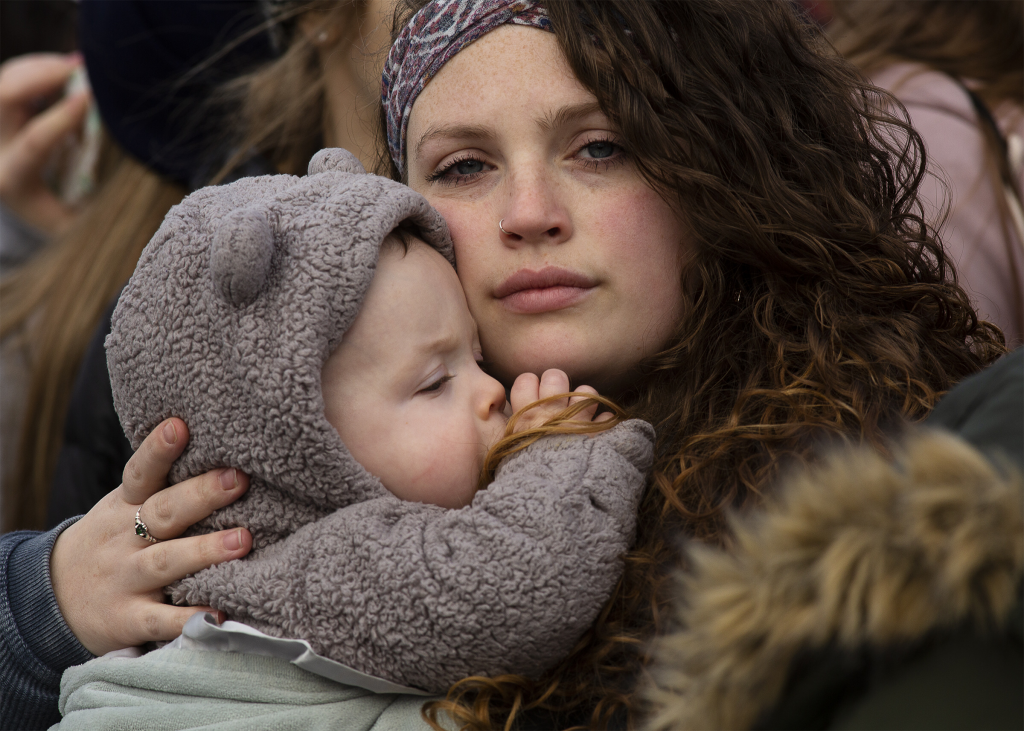Abortion hurts women. Deeply.
This is my personal opinion, although it’s based on countless conversations and encounters over the years with women who can’t remember the experience without a sigh of pain, and are periodically brought to their knees when some chance occurrence picks at the scab they’ve grown over the raw wound.
Nonreligious women have told me they think often of the little one they rejected, and how the enormity of what they lost became clear when they held their born children in their arms. Religious women have trouble believing that God can forgive the unforgivable.
They feel estranged from Love Himself, and the source of all joy. They have to be convinced that they — even they — are the sheep the Good Shepherd longs to bring home.
Abortion supporters disagree. It’s not harmful to women. Indeed, it is a liberating procedure and ultimately positive, a simple act of will and self-determination. There is no victim in abortion, they say, not the embryo, not the mother, and certainly not the father. If there is no victim then there is no guilt. If no guilt, then nothing that can emotionally or spiritually damage women.
For proof that abortion is not traumatic, they cite studies that show that women who terminate an unwanted pregnancy do not suffer more psychological difficulties or increased rates of substance abuse compared to women who gave birth.
These studies followed women for up to five years after their abortions, and looked at single outcomes, like rates of depression or suicidality, not the totality of their distress.
I don’t believe that clinical studies can ever fully track the negative spiritual and emotional consequences of abortion for women. Frequent bouts of grief that mar an otherwise peaceful life are impossible to quantify.
However, if one must fight back against abortion supporters that cite clinical studies, then the thing to have is a better study, a more accurate one that followed women for a longer period of time, and measured all the signs of psychological distress together. One such study was just published in the Swiss medical journal Medicina.
The study measured the prevalence of psychological disorders in almost 4,000 American women from the ages of 15 to 28. It compared mental health before and after pregnancy, abortion and birth, and took into account the crucial fact of whether the women freely chose to terminate their pregnancies or were coerced or pressured into aborting.
The findings are shocking but not surprising, at least to those of us whose ideology doesn’t willfully blind us to the emotional toll abortion takes on women.
The study shows that by the time a post-abortive woman is 28, she is 74% more likely to experience depression, anxiety, or suicidality than one who has never aborted. This high incidence rises to 84% in those who were pressured into the procedure, whether by parents, husband, or boyfriend.
People who struggle with depression, guilt, or anxiety often turn to drugs or alcohol to dull the pain or self-medicate, sometimes leading to addiction. Such is the case with some post-abortive women.
The Medicina study shows that they are twice as likely as women who gave birth to their babies to suffer from substance abuse (of opioid, marijuana, alcohol, or illegal drugs). This is true, interestingly, whether their pregnancies were wanted or unwanted.
Again, studies asking women to check boxes on a questionnaire can only measure so much. Trauma does not always evince itself by neat measurable outcomes that can be charted and tracked.
Most of the women who have shared their abortion regret with me are by all clinical standards enjoying normal mental health, and I don’t think any of them were substance abusers. But they were traumatized, nonetheless, and scarred by their experience.
Sex, untrammeled by old-fashioned, outgrown moral codes, is fun and consequence-free, our libertine society tells us. To say this with a straight face they have to first pretend the hundreds of thousands of children whose lives have been ended through legal abortion never existed, and they have to create and cite studies that show women going blithely on their way after aborting their babies.
Interestingly, when pro-abortion groups gather to demonstrate, as they do in the Women’s March in Washington, D.C., the mood is not blithe but sullen, angry, and vulgar. The opposite of the pro-life marches, which are characterized by their joyful ambiance and their emphasis on warm support for the heartbroken post-abortive women among their ranks.
It is opponents of abortion who know the truth, whether by clinical studies or personal experience. Regret, remorse, sadness, self-doubt, anger, even occasionally despair, are the heavy burdens tied on the backs of women by the culture of death. It is the culture of life that brings hope and happiness back to them, that points to the rising sun after a long, cold night.

